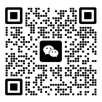一、教学目标
1.语言知识目标:
Key vocabulary ----掌握词汇army,Canada treat, injured, invent, operate, in spite of, in the end, take care of。
Key structures ----- 在语境中感知so, so that和because引导的状语从句的用法。.
2.语言技能目标:
通过阅读My hero-Dr Norman Bethune,让学生掌握并运用略、精读的技巧,
即略读找大意,精读搜索相关信息。
3.情感态度目标:
通过了解英雄人物,培养学生爱英雄、学英雄、争做英雄的好品质,以此发奋学习,热爱生活,做国家有用人才。
二、教学重点、难点
1.掌握并运用略读、精读的技巧。
2.掌握so. so that的用法。
【课前延伸】
课前朗读:
Army Canada-- Canadian medical treat—treatment Dr (=doctor)
operate--operation give one’s life to front injured
war First World War invent tool local in spite of take care of
阅读领航:《诺尔曼·白求恩的一生》
诺尔曼·白求恩1890年出生于加拿大安大略省格雷文赫斯特镇。他的胸外科医术在加拿大、英国和美国医学界享有盛名。白求恩1935年加入加拿大共产党,中国抗日战争爆发后,1938年3月,他受加拿大共产党和美国共产党派遣,率领一个由加拿大人和美国人组成的医疗队来到延安。他的牺牲精神、工作热忱、责任心,均称模范。白求恩以年近50之躯,多次为伤员输血,一次竟连续为115名伤员做手术,持续时间达69个小时。1939年10月下旬,白求恩在河北省涞源县摩天岭战斗中抢救伤员时左手中指被手术刀割破,但他不顾伤痛,发着高烧,坚持留在前线指导战地救护工作。他说:“你们不要拿我当古董,要拿我当一挺机关枪使用。”终因伤势恶化,转为败血症,医治无效,于11月12日凌晨在河北省唐县黄石口村逝世。临终前他讲的最后一句话是:“努力吧!向着伟大的路,开辟前面的事业。”
【课内探究】
※读前导入:
Enjoy the song ”hero” and pictures, say something about heroes.
※多层阅读:
Step 1 Watch the flash and answer the following questions.
![]()
Who is he? When was he born? Where was he from?
What did he do? Why did he die? What do you think of him
思考1:阅读记叙性文章时,要弄清哪五大要素?(5W)
Step 2 Skimming(略读)----match the sentences with the paragraph

1.Why did he write books? Para 1
2.How long did he once do operations without stopping? Para 2
3.Why did he invent new ways to treat soldiers? Para 3
4.Why was he a hero in China? Para 4
5.Where was he from? Para 5
思考2:How to skim the text quickly?
![]()
Step 3 Extensive reading(精读)
1.(Para 2)read this paragraph carefully, answer the questions.
a. When did he become a doctor?
b. Why did he go to the front?
c. What did he do during the war?
2.(Para 3) read this paragraph carefully, fill in the blanks.
a.There were few doctors, he had to work hard.
b. He opened to give to local people and .
c. he wrote books doctors could learn about new treatments.
思考3:a 和 c所填内容有什么不同?
3.(Para 4 )which one is true? ( ) Correct the wrong sentences.
a. He performed operations for 66 hours without stopping.
b. He saved 122 people.
c. He died because he was killed by enemies.
d. He cut his hand during an operation.
思考4:How to choose T or F exactly(准确地)?
![]()
4. Memory test----T or F and correct the false ones.
1) Norman Bethune is one of China’s most famous heroes . ( )
2) He gave his life to helping the Japanese people. ( )
3) Norman Bethune was born in 1890. ( )
4) He became a doctor when he was 24.( )
5) He went to the front to in the Anti-Japanese War. ( )
6) He came to China at the age of 38.( )
7) In the end he died because he was tired . ( )
8) He is remembered in both Japan and China. ( )
思考5:3)、4)、6)题对你平时做阅读理解题有什么启发?

Step 4 Retell the story according to the following table. Canadian ,

give his life to born,1890,1916,doctor,
front, look after, injured soldiers

invented treatments and medical tools 1938, Yan’an,
opened hospitals, wrote books, once, performed operations, 69 hours

cut his hand, in the end, died hero, remembered
Canada and China ※Language points
1.give one's life to sth. / doing sth 献身于……
He gave his life to (help) the disabled (残疾人)
2.without sth. / doing sth
He helped his grandma clean the garden without (stop) to have a rest.
3 .stop doing sth. stop to do sth
She stopped (cry) (play ) her toys.
4.in spite of +名词或动名词。尽管……,虽然……
翻译:
虽然有暴风雨,我们依旧准点到达火车站。
尽管切着了手,他还坚持工作。
※课堂小结:
1.The Adverbial Clauses(状语从句)
adverbial clause with so表
adverbial clause with so that表
adverbial clause with because 表
2.阅读技巧回顾
1)读一篇文章时,我们通常用到的方法有两种: 略读和精读。
略读找大意,精读搜索详细信息。
2)定、状、补语来捣乱,是非对错要分清。
3)找准关键词,善用排除法,既快又准把序排。
3. From now on, to be a hero of your own.
 《汽车实用技术》
《汽车实用技术》 《文学与人生》
《文学与人生》 编辑QQ
编辑QQ  编辑联络
编辑联络 

